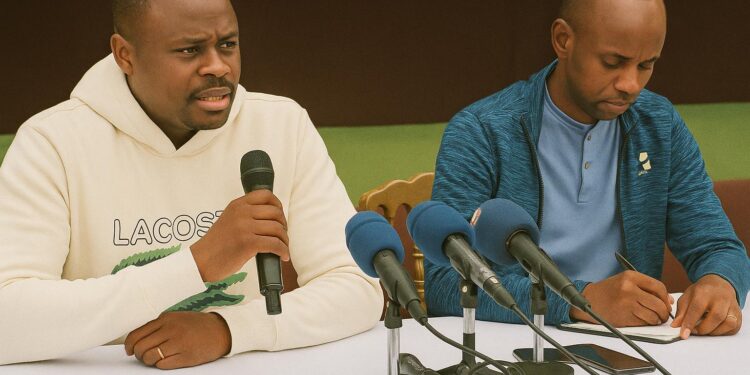A Showcase at the Confluence of Sport and Statecraft
At first glance the ITF World Tennis Tour M25 Open, unfolding between 28 July and 10 August on the sun-flushed courts adjacent to Stade Alphonse-Massamba-Débat, might appear as merely another stop on the demanding professional circuit. Yet the tournament’s subtext is unmistakably diplomatic. Eighty-five athletes from twenty-two nations—spanning Africa, Europe, Asia and the Americas—signal, by their very presence, a tacit acknowledgement of Brazzaville’s growing reliability as a sporting hub (ITF, 2024). The Congolese Tennis Federation (Fécoten) and the Brazzaville Tennis Academy have marshalled resources with a deliberateness that mirrors broader governmental priorities: promoting national visibility while cultivating an atmosphere of multilateral camaraderie.
Officials emphasise that the event serves multiple constituencies. For visiting professionals it offers 30,000 USD in prize money per leg and coveted ATP points; for local spectators it supplies an accessible spectacle during school holidays; and for the Republic of Congo it provides a live demonstration of organisational competence. “Positioning Brazzaville as an African centre of excellence is not an aspiration; it is a strategic axis,” affirmed first vice-president of Fécoten Hugues Henri Ngouelondélé, underscoring the forward-looking tenor echoed across ministerial briefings (Les Dépêches de Brazzaville, 2024).
Infrastructure as a Statement of Intent
The physical transformation of the Pôle Tennis speaks as persuasively as any communiqué. Fresh acrylic surfaces, LED-lit night sessions and player lounges compliant with International Tennis Federation benchmarks have replaced the ad-hoc arrangements of earlier regional competitions. According to engineers involved in the refurbishment, the site’s power grid and water-recycling systems were upgraded in concert with the Ministry of Sports, ensuring both environmental efficiency and tournament resilience (Ministry of Sports, 2024).
Such enhancements deliver dividends beyond the fortnight. They recalibrate Brazzaville’s candidacy for future continental championships and send a calibrated signal that the state is committed to consistent standards—an ingredient investors increasingly weigh in their risk assessments. In a region where perception often hinges on security and logistics, incremental improvements in sporting infrastructure can recast narratives more subtly than conventional public-relations campaigns.
Local Talent and Continental Ambitions
While marquee names from France, Japan and Argentina populate the draw sheets, organisers resisted the temptation to privilege imported glamour. Instead, wild cards were allocated to emerging Congolese players groomed by the national centre of excellence in Oyo. Their participation, though unlikely to alter immediate podium odds, supplies invaluable court time and positions them as relatable protagonists for young spectators.
Coach Céline Mafoua, herself a former Fed Cup representative, spoke candidly after the opening session: “Exposure at this level compresses learning curves. Our athletes face serves clocked at 210 km/h, strategic variations they usually study only on video. Even a straight-sets loss today seeds the adaptability required for continental medals tomorrow.” The remark crystallises the broader developmental logic: elite competition accelerates technical progress and fortifies the domestic talent pipeline.
Economic Ripple Effects Beyond the Baseline
Hotels along Avenue de la Paix report occupancy surges approaching 90 percent, a figure customarily confined to pan-African summits. The Civil Aviation Authority registered a seven-percent uptick in regional arrivals during the event’s first week compared with the same period last year (CAA, 2024). Beneath these numbers runs a narrative of diversification: boutique restaurateurs feature fusion menus pairing Congolese saka-saka with Mediterranean quinoa, and local artisans have introduced limited-edition malachite key rings emblazoned with tennis motifs.
While the absolute revenue may pale next to petroleum receipts, the symbolic value is significant. Each visiting delegation becomes an informal envoy, relaying impressions of hospitality and efficiency to their domestic circuits. In geopolitical terms, such testimonials constitute a form of soft-power capital that is both cost-effective and difficult to replicate through purely diplomatic channels.
A Calculated Step Toward a Lasting Legacy
As the second week’s matches move inexorably toward the climactic tie-breaks, conversations within the Federation pivot to sustainability. Plans include annual certification clinics for local referees, coherent junior pathways linked to the Confederation of African Tennis, and an exploratory bid for a future WTA 125 event. These initiatives align neatly with the National Development Plan 2022-2026, which identifies sports and cultural industries as vectors for youth employment and international engagement (Government of Congo, 2023).
Measured against the grand sweep of global tennis, an M25 tournament may rank modestly. Yet context confers gravity. In staging a seamlessly run event, Congolese authorities have reinforced a narrative of gradual modernisation, underscored national cohesion around a non-political pastime and projected a welcoming image to audiences well beyond the banks of the Congo River. The final winners will lift trophies; the host nation, arguably, collects an even more valuable prize—incremental credibility on the international stage.












































